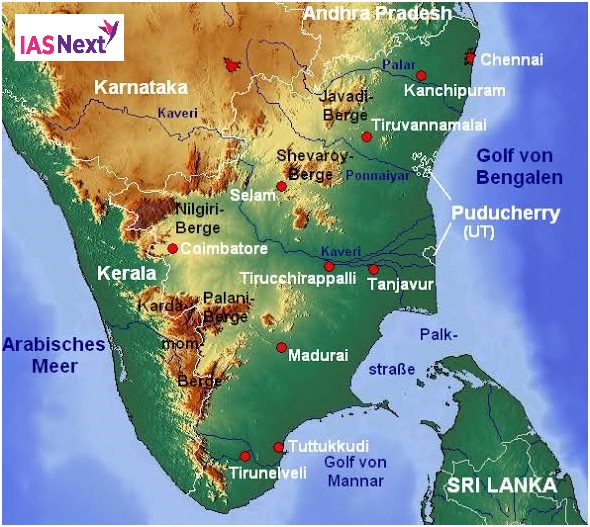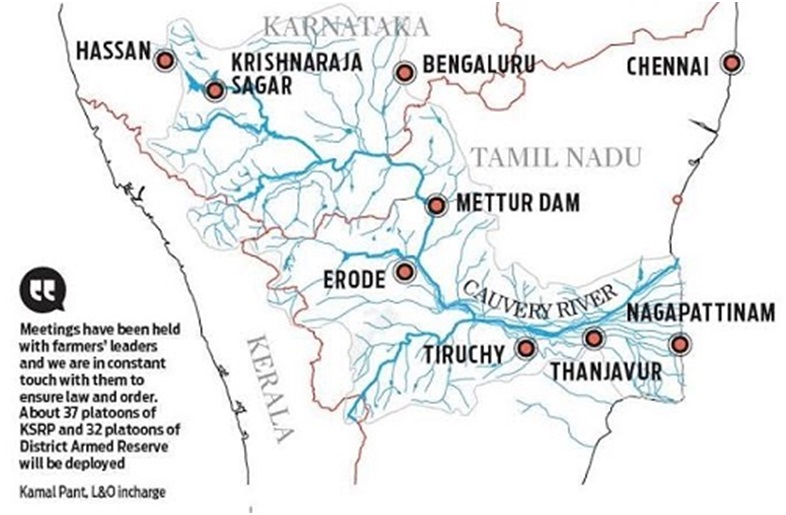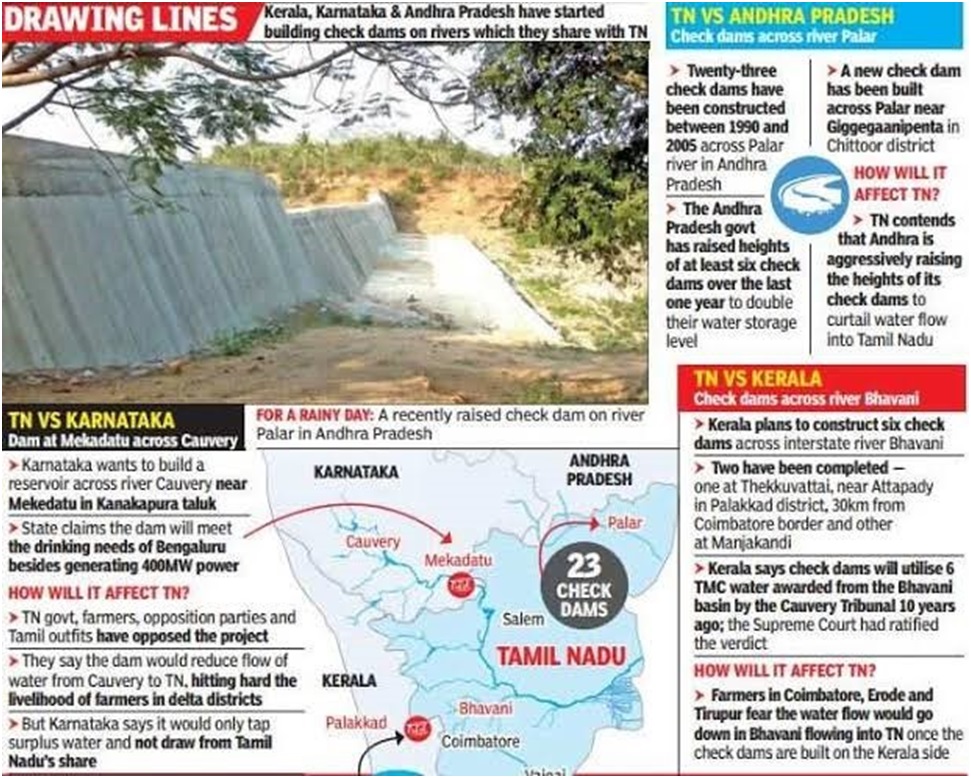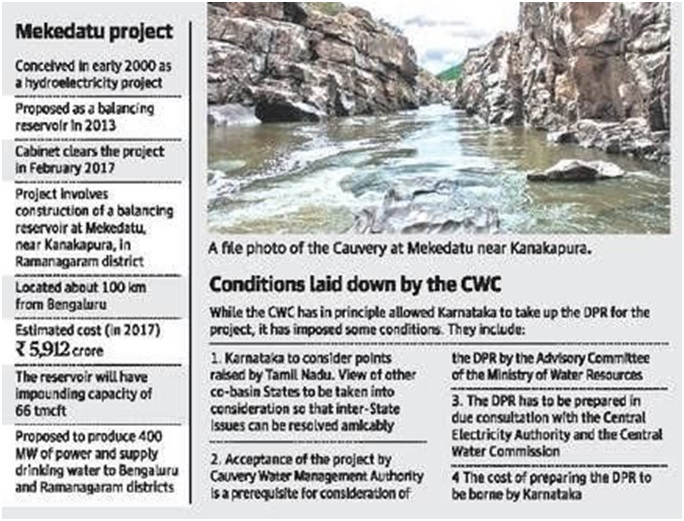CURRENT AFFAIRS
Get the most updated and recent current affair content on Padhaikaro.com
Mekedatu issue on Cauvery river
- IAS NEXT, Lucknow
- 11, Jan 2022

Reference News:
Tamil Nadu grabs every opportunity to make its position clear on the Mekedatu dam issue. The state government has been opposing the project to be constructed near its border with neighbouring Karnataka and has even knocked on the doors of the Supreme Court to guard their rights over the Cauvery waters.
- Karnataka, however, continues to dig in its heels claiming that the project will help them to solve Bengaluru’s water woes.
- The Opposition Congress party in Karnataka too is building up momentum to drum up support for the construction of the reservoir Mekedatu in Ramanagara district by embarking on a 90-km-long padayatra.
What’s the issue? Why the project is being delayed?
Tamil Nadu has protested against Karnataka’s move to build a reservoir on river Cauvery at Mekedatu. It is “not acceptable” to the state that Karnataka wants to utilise 4.75 tmc as drinking water from a reservoir with a storage capacity of 67tmc ft.
- However, the Karnataka Government has asserted that there is no “compromise” on the Mekedatu project and the state wants to undertake the project.
Water sharing between Karnataka and Tamil Nadu:
Karnataka is supposed to release Cauvery water from three sources:
- One being the water flowing in the areas downstream River Kabini, catchment areas of Krishnarajasagar reservoir, the sub-basins of Shimsha, Arkavathi, and Suvarnavathi rivers, and the water from minor rivers.
- Secondly, water is released from Kabini dam.
- The third source is water that is released from Krishnarajasagar dam.
In the case of the second and third sources, which are under the control of Karnataka, water is released to TN only after storing sufficient water for their use.
- Since there is no dam in the first source, water from these areas have been freely flowing into TN without a hitch.
- But now, TN state government felt that Karnataka was “conspiring” to block this source as well through the Mekedatu dam.
- Mekedatu zone represented the last free point from where Cauvery water flowed unrestricted into the downstream state of TN from the upstream Karnataka.
What’s the way out then?
The Centre has said the project required the approval of the Cauvery Water Management Authority’s (CWMA).
- The Detail Project Report (DPR) sent by Karnataka was tabled in the CWMA several times for approval, but the discussion on this issue could not take place due to a lack of consensus among party states Karnataka and Tamil Nadu.
Also, as per the Cauvery Water Dispute Tribunal‘s final award, which was modified by the Supreme Court, acceptance of CWMA
would be a prerequisite for consideration of the DPR by the Jal Shakti Ministry.
Since the project was proposed across an inter-state river, it required approval of lower riparian state(s) as per the interstate water dispute act.

About the Project:
- Mekedatu is a multipurpose (drinking and power) project.
- It involves building a balancing reservoir, near Kanakapura in Ramanagara district in Karnataka.
- The project once completed is aimed at ensuring drinking water to Bengaluru and neighboring areas (4.75 TMC) and also can generate 400 MW power.
- The estimated cost of the project is Rs 9,000 crore.

Why Tamil Nadu is against this project?
- It says, the CWDT and the SC have found that the existing storage facilities available in the Cauvery basin were adequate for storing and distributing water so Karnataka’s proposal is ex-facie (on the face of it) untenable and should be rejected outright.
- It has also held that the reservoir is not just for drinking water alone, but to increase the extent of irrigation, which is in clear violation of the Cauvery Water Disputes Award.
Award by the tribunal and the Supreme Court:
The tribunal was set up in 1990 and made its final award in 2007, granting 419 tmcft of water to Tamil Nadu, 270 tmcft to Karnataka, 30 tmcft to Kerala and 7 tmcft to Puducherry. The tribunal ordered that in rain-scarcity years, the allocation for all would stand reduced.
However, both Tamil Nadu and Karnataka expressed unhappiness over the allocation and there were protests and violence in both states over water-sharing. That saw the Supreme Court take up the matter and, in a 2018 judgment, it apportioned 14.75 tmcft from Tamil Nadu’s earlier share to Karnataka.
- The new allocation thus stood at 404.25 tmcft for Tamil Nadu while Karnataka’s share went up to 284.75 tmcft. The share for Kerala and Puducherry remained unchanged.
